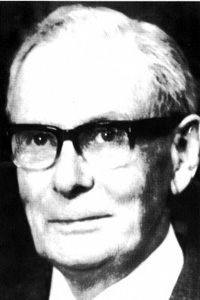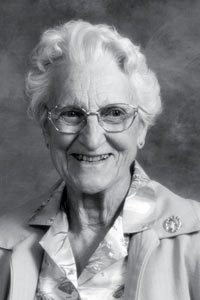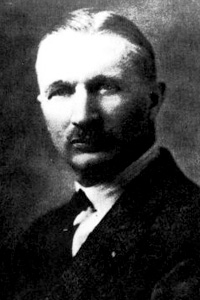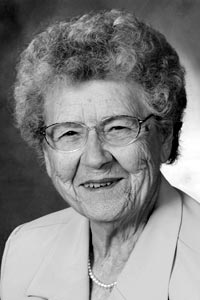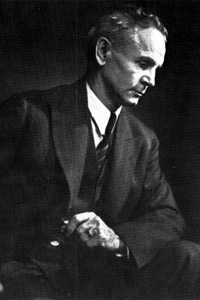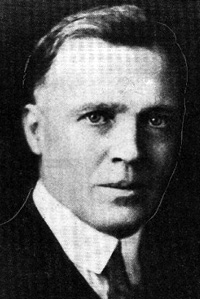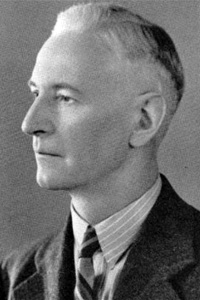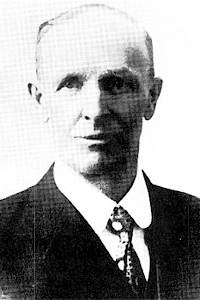Dr. David A. Brown was born in Scotland. At a young age, he emigrated with his parents to the Deloraine area. There he finished his high school education and then attended and graduated from the Manitoba Agricultural College. In 1922, he began his life-long agricultural and horticultural career. He worked at the Morden Experimental Farm. Six years later, he transferred to the Brandon Experimental Farm (now the Agricultural Research Station). Even after he retired, he continued to be very busy until a serious fall in 1988 curtailed his activities. At the Brandon facility, he concentrated his efforts on 28 agricultural illustration stations that modeled the latest research and farm practices. He developed the orderly eight-year crop rotation system that proved...
AHOF Members archive
Britton, Mabel
Mabel (Bell) Britton (nee McCalpin) was raised and educated in Killarney. In 1928, she received her teacher training in Winnipeg, after which she taught for three years. In 1936, she earned a BSc in Home Economics from the University of Manitoba. Following graduation, Mabel was employed by the government to conduct Federal-Provincial Youth Training Schools, the first of their kind in Canada. Mabel taught basic cooking, sewing and homemaking skills to young women. She was appointed Food Specialist with Manitoba Extension Service and pioneered the development and delivery of adult leadership programs to improve the quality of farm family life. These life skills and farm record keeping programs became the base for Home Economics extension in Manitoba. In 1940, Mabel...
Bredt, Paul Frederick
Paul F. Bredt was born in Leipzig, Germany and came to Canada at the age of 17. The family settled on a homestead near Edenwold, Saskatchewan. Here he attended public school and upon completion he entered the Manitoba Agricultural College and graduated in 1914 with highest honours. Following graduation, he was appointed assistant livestock commissioner for the province of Saskatchewan and a short time later was made commissioner. In 1919, he took up farming at Kemnay, Manitoba, established herds of Shorthorns and Clydesdales and specialized in growing registered grains. In 1926 he was elected to the board of directors of the Manitoba Wheat Pool and Manitoba Pool Elevators and was also elected vice-president of the two organizations. In 1931, he...
Brake, Eileen O.
Eileen Brake (nee Bryant) was born in Stanley Municipality April 8, 1919. She received her formal education at Morden, Manitoba, and teacher training at Brandon Normal School. She taught at Lake Max, south of Boissevain, before her marriage to Wilfrid Brake on November 4, 1944. They had a daughter, Betty (Philp) and a son, Bob, then six grandchildren and six great grandchildren. Eileen worked alongside Wilfrid during their farming years, keeping farm records, tending the yard, driving the truck and tractor when needed and assisting him in his many community activities. The Brakes won four local home grounds competitions. Community involvement began early in life in school, church, C.G.I.T. and 4-H. The springboard for many later associations was her...
Bracken Hon., John
Born at Ellesville, Ontario and reared on a farm, Hon. John Bracken was a graduate of the Ontario Agricultural College. Moving west as a young man, he became professor of field husbandry at the University of Saskatchewan from 1910 to 1920. During his teaching career, Bracken wrote two books: Crop Production in Western Canada and Dry Farming in Western Canada. These were major contributions at the time, as no other compilation of existing data had been made in Western Canada. In 1920, he was named president of the Manitoba Agricultural College. Soon after becoming president, Bracken was appointed to chair an Agricultural Extension Council, organized to maintain close co-operation in agricultural extension activities. A related activity which Bracken organized was...
Black, William John
W.J. Black was born at Mansfield, Dufferin County, Ontario in 1872. He attended the Ontario Agricultural College and graduated with his B.S.A. in 1901. Following graduation, he moved west to Winnipeg and took over as the editor-in-chief of the Farmer’s Advocate from 1902-03. In 1913, he was instrumental in establishing the Canadian Boys and Girls Clubs in conjunction with Edgar Ward Jones. He was appointed Manitoba’s deputy minister of agriculture in 1905 and in the same year he was appointed the first president of the Manitoba Agricultural College and professor of animal husbandry, a position he held for 10 years. Much of the development of the Manitoba Agricultural College can be attributed to Dr. Black’s sense of duty and dedication...
Bell, James Reynolds
Dr. James Reynolds Bell was born at Clearwater, Manitoba, the son of pioneer homesteaders Thomas and Annie Bell. He attended high school at Clearwater and worked on his father’s farm prior to his enrollment in the Manitoba Agricultural College at the University of Manitoba in 1912. He graduated from the college with a B.S.A. degree. Mr. Bell entered the Manitoba Civil Service as an agricultural representative for the Portage la Prairie district, one of a group of five who were appointed as the first agricultural representatives. In 1923 he was transferred to the position of livestock field man with the department’s extension service and later he became livestock commissioner. He stayed on as commissioner for 26 years. Mr. Bell helped...
Bedford, Spencer Argyle
Spencer Argyle Bedford was born at Busted, Sussex, England in 1851. His family emigrated to Canada when Spencer Bedford was eleven years old and took up land in Ontario. Here he learned the art of surveying and was soon guiding parties of settlers into the west in search of land. He traveled widely with Dr. W. Saunders to select suitable sites for the Experimental Farms in Manitoba and Northwest Territories and aided in the establishment of the Central Farm in Ottawa. In 1888 he was appointed the first superintendent of the Experimental Farm in Brandon. His early work involved the development of the best methods for bringing the prairies under cultivation and the introduction of many varieties of cereals, grasses,...


